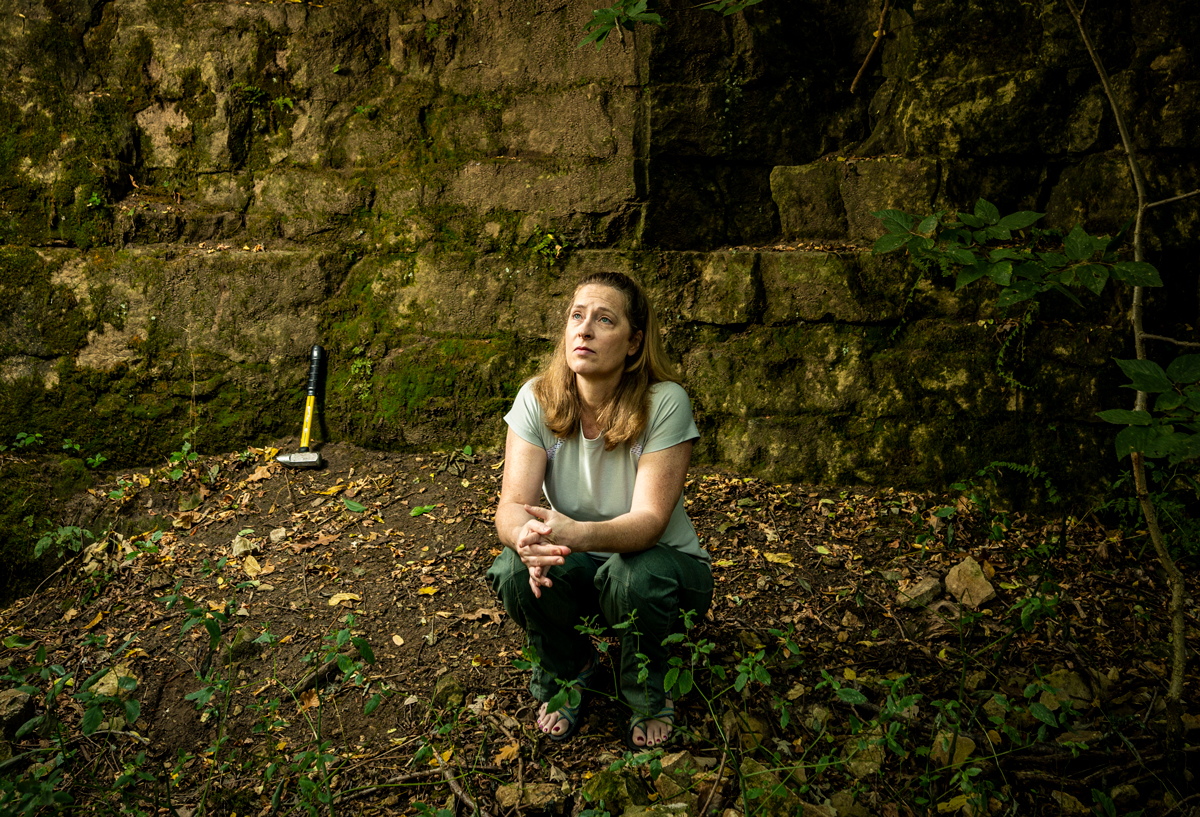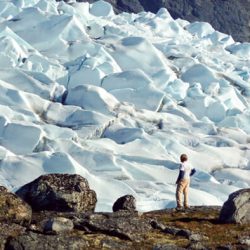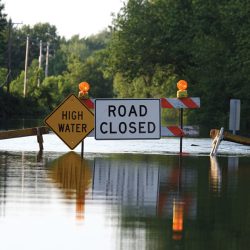Let’s Talk about Climate Change
Andrea Dutton gets frank about rising sea levels.
World-renowned geochemist and UW–Madison professor Andrea Dutton studies past behaviors of sea levels and polar ice sheets to predict their fate. The 2019 MacArthur “Genius” Fellow and 2020 Fulbright Scholar collects and examines fossil coral reefs from coasts around the globe, focusing mainly on time periods with a similar average global temperature to the one seen today. She sheds light on rising sea levels so we can prepare for what’s to come.
How would you describe your work?
I often liken my work to a detective’s, because I’m looking for pieces of the puzzle. When I’m out in the field 24/7, my whole mind is immersed in the mystery that we are trying to solve, and I’m constantly asking myself questions like, “What else can I look for? What are the missing pieces of the puzzle? Is there a different way to interpret what we see here? How can we answer this while we’re here?”
Your findings show that, about 125,000 years ago, when Earth last saw the temperatures we’re seeing today, sea level was about 20 to 30 feet higher than it is now. Why is it that today’s sea levels don’t seem to be in sync with past trends?
What has happened today is we have warmed up the earth so quickly that the earth systems are still adjusting to that change. They’re playing catch-up to this rapid warming that we’ve just forced upon the ice sheets. What that tells us is that our ice sheets are out of equilibrium with the present climate. And that’s why it begs this question of, “Okay, if we’re headed toward something like 20 to 30 feet of sea-level rise, how quickly is that going to happen?”
What is one of the biggest uncertainties in projecting the future of sea-level rise?
We don’t fully understand the physics of that rapid, dynamic retreat of ice in the polar regions, especially for the Antarctic ice sheet. We’re now watching that in real time, [monitoring] the ice sheet, and trying to learn on the fly about how this process works. But that’s where I come in as a geologist, because I can look at the past and say, “All right, to some extent we’ve done this experiment before. Maybe we didn’t warm it up as quickly, but we have been at these temperatures before.” We can use that knowledge.
In a TEDx Talk, you mentioned that sea-level rise is more of a social problem than a scientific one. Could you elaborate on that?
We have enough scientific knowledge that we understand that sea level is going to continue to rise even with the amount of warming that has already happened. Any additional warming now will make that even worse. The problem now is fundamentally getting people to accept that sea-level rise will be part of our future.
What can people do to start a conversation around what’s happening and prepare for the future?
That’s the biggest challenge: getting people to talk about climate change. So, I encourage everyone to talk about it. The silence that is often wrapped around this issue really prevents us from making progress.
Published in the Winter 2020 issue




Comments
No comments posted yet.